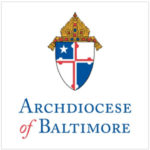This week Baltimore saw at first hand tragic fallout from the sexual abuse issues facing our American society today. The Catholic Church and all segments of society face multiple challenges related to this painful concern.
In any case of abuse, the individual abused suffers enormously, and, if there is a breach of trust involved, the suffering is magnified. We know that there have been painful breaches of trust, and have dedicated ourselves to seeking solace for victims and fair punishment for perpetrators, goals which we have pursued but have not always succeeded in achieving, for many years. I apologize for instances in which our efforts have failed.
What happened last Monday, when a young man shot a priest whom he had once trusted, underscores how grave the issue is for our community, both as a community of faith and as a part of the society in which we live.
We acknowledge, and the very public record of those days support, that in 1993 Father Maurice Blackwell was credibly accused of abuse. The accusation was the center of media attention for days. In keeping with our policy, the young man was offered treatment and counseling, and Father Blackwell was immediately placed on administrative leave and sent away for psychiatric and physical evaluation.
There was a huge outcry from his supporters in the parish, St. Edward’s, where his ministry was much loved and appreciated. Meanwhile, his case was appropriately in the hands of the State’s Attorney and the Baltimore Police Department. In time, the authorities decided not to pursue charges. Our pleas for other accusers to come forward received no response.
Father Blackwell completed his stay at the mental health facility in Connecticut and I received a lengthy report from them. The report echoed what visitors had told me, about how he had entered into the program of personal reform and renewal, in both the psychological and spiritual arenas, with an unusual level of energy and commitment. The report also concluded that Father Blackwell was not “a danger to young men in a sexually predatory fashion.”
When he returned to Baltimore, Bishop John Ricard, his immediate supervisor as Vicar for the City Parishes, and I met with him to discuss possible next steps. One option, clearly, was that he would not return to ministry. Our commitment as an archdiocese is to not put anyone in danger of harm from a person acting in the name of the Church. With us Father Blackwell, while again asserting his innocence, pleaded his commitment to living chastely and his great eagerness to minister to the people whom he deeply loved. His already existing peer group of priests, including pastors of the parishes surrounding St. Edward’s, came forward with strong support for his return and committed themselves to be in regular contact with Father Blackwell, giving him personal and spiritual encouragement and bearing witness to his healthy ministry.
After extended discussion and consultation among ourselves, Bishop Ricard and I agreed on this proposal, that Father Blackwell might return to St. Edward’s, where the accusation was well known, under the condition that he continue the psychological counseling and spiritual direction programs he had begun during his time away, give up any direct ministry with minors and young adults, move from the rectory to reside with his mother, meet faithfully with the support group of priest pastors from neighboring parishes and report regularly to Bishop Ricard. The Parish Council and other parish leaders were informed of this agreement, and Father Blackwell returned to his assignment. Also, I specified that, should further allegations arise, his assignment would be terminated.
Several months later the Independent Review Board indicated in writing its disagreement with my decision. As they themselves said in their letter to me, they wrote without knowledge of the confidential report I had received from the treatment facility and without having met personally with Father Blackwell. Although there was this disagreement from the Review Board, there had been wide public discussion of Father Blackwell’s reappointment, and no relevant information was hidden from anyone.
I contacted the treatment facility and received permission to refer publicly to the confidential report. Also, I drafted a reply to the Review Board and invited Father Blackwell and the leader of his support group, Father Robert M. Kearns, now the Superior General of the Josephite Fathers, to meet with me. We understood that it was important for me to authorize the publication of the exchange of letters. Father Kearns and the parish council leadership volunteered additional letters to affirm publicly that any potential risks had been considered. These letters were also published.
There have been no events involving Father Blackwell from September 1993 to the present but, sadly, in 1998, another accusation from 20 years earlier surfaced. In the light of previous discussions with Father Blackwell, I immediately relieved him from his office as leader of a parish.
I take full responsibility for the decision I made in 1993 given the facts and circumstances before me; in light of what has occurred and of what was revealed in 1998, I would not make the same decision today.
To the Lord, I am grateful for the policy developed here over time and to other discussions in which I have participated. We grieve and pray for the victims of abuse, a situation underscored by comments to me from the many faithful and trustworthy priests I met with earlier this week. We have no confusion among us that we must put first the safety of children, followed closely by outreach and pastoral care for the victims.
God grant us the ability to translate into action this conviction, so well stated by Pope John Paul II, “People need to know that there is no place in the priesthood and religious life for those who would harm the young.”
William H. Keeler
Archbishop of Baltimore

